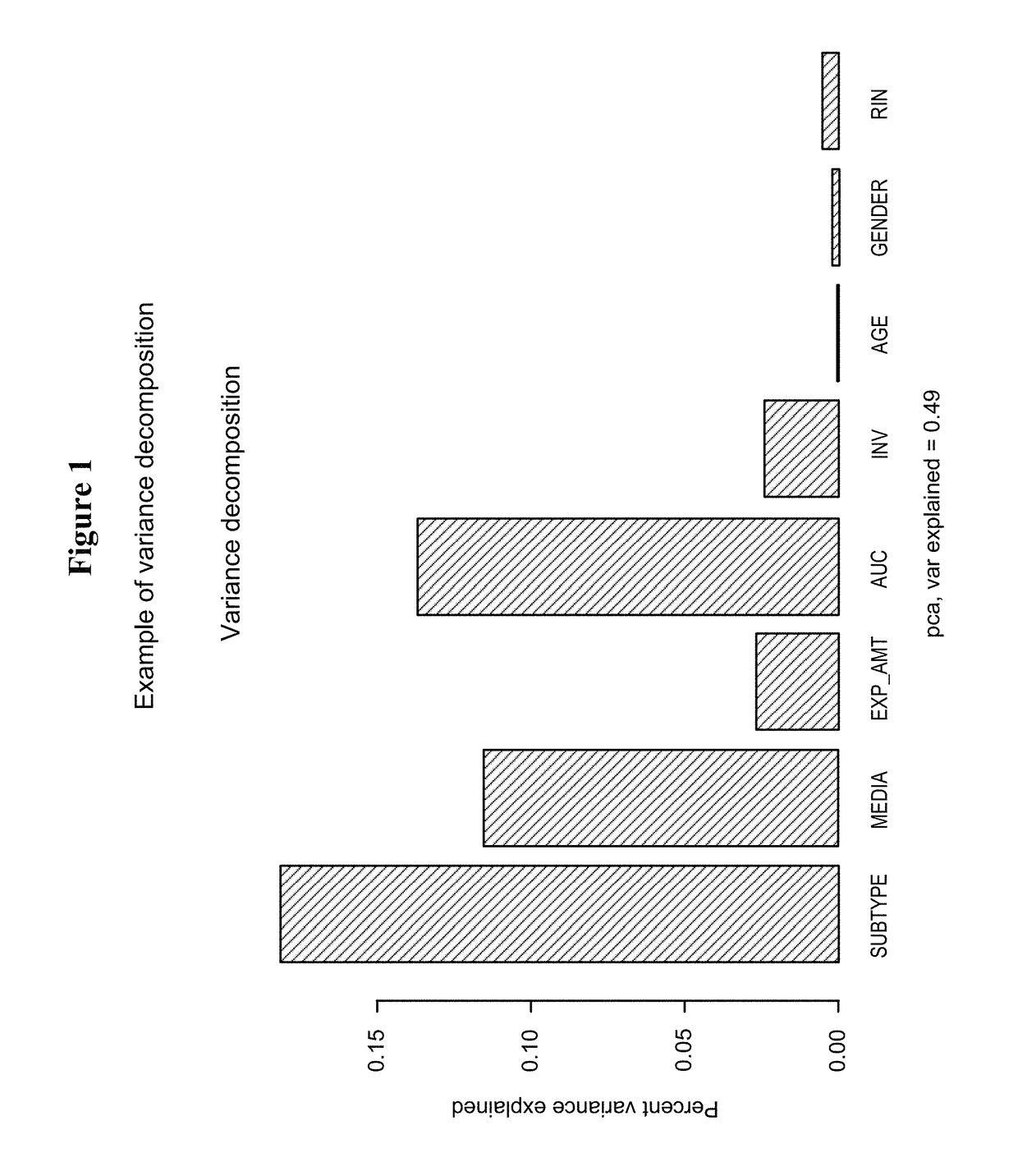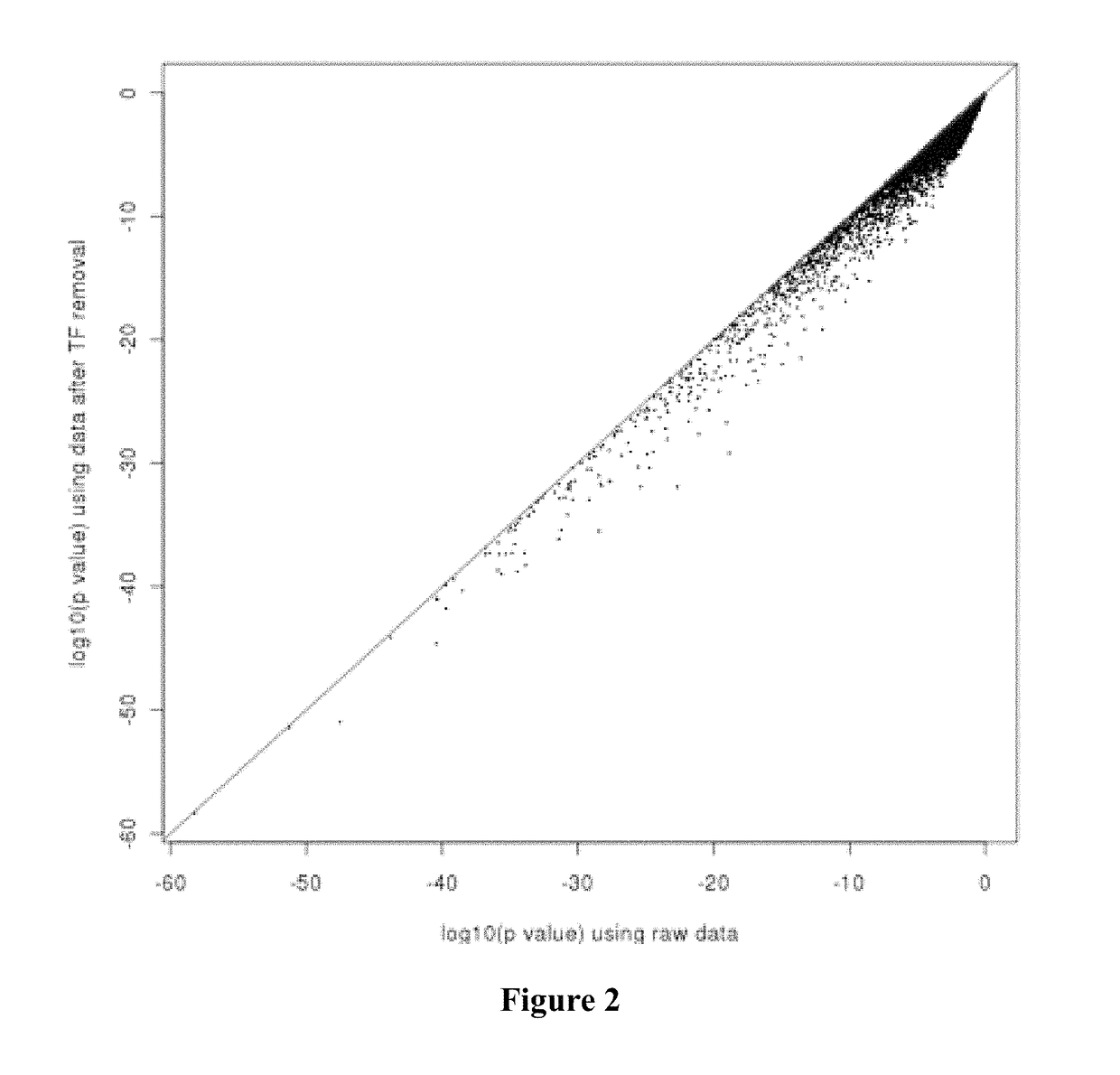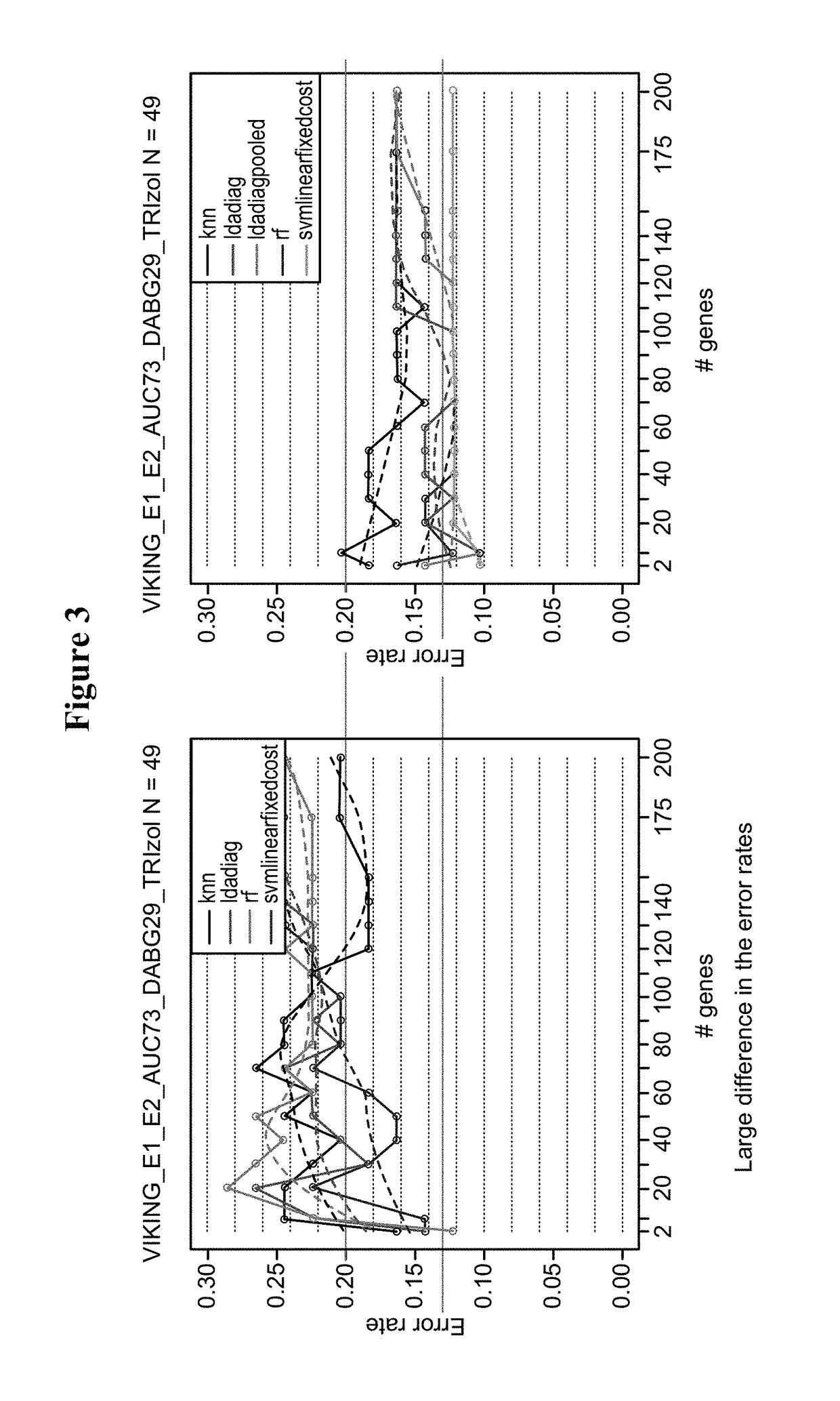Algorithms for disease diagnostics
a disease and algorithm technology, applied in the field of algorithm for disease diagnosis, can solve the problems of no definitive diagnosis, sharp increase in the number of cancers, and inability to diagnose definitively
- Summary
- Abstract
- Description
- Claims
- Application Information
AI Technical Summary
Benefits of technology
Problems solved by technology
Method used
Image
Examples
example 1
[0223]All tissues and FNAs were collected under IRB approved protocols.
[0224]Tissue Procurement
[0225]Prior to obtaining FNAs from prospective collections, thyroid surgical tissue samples can be purchased from a clinical tissue vendor. In some embodiments, the samples are selected from their proprietary tissue database, RNA is extracted by the laboratory, 50 ng amplified using the NuGEN Pico kit, and hybridized to exon arrays.
[0226]Sample Collection, Preservation and Transport
[0227]The FNA needed to be collected into a preservative that allows for the stabilization of DNA and RNA immediately following collection in the clinic, as well as through subsequent shipping and handling. In some embodiments, the present method identifies a collection medium that allows isolation of both DNA and RNA from the FNA samples.
[0228]A study to compare different collection media is performed. In some embodiments, FNAs collected from post operative thyroid tissue are collected into e...
example 2
ision (Goldfish)
[0258]The aim of this study was to investigate whether the use of RNAprotect or TRIzol results in differences in assay performance and if so, which performs the best. Samples for this study were 10 paired ex vivo FNA samples collected in both TRIzol and RNAprotect. Additionally, samples composed of mixtures of NHP: PTC were set up in triplicate at a ratio of 100:0, 80:20, 60:40 and 0:100, respectively.
[0259]In summary, 3 out of 4 prehyb+post-hyb metrics showed significant differences between RNAprotect and TRIzol. Additionally, when analyzing all samples by PCA, samples cluster by media type, not biology in the first two PCs. Analysis of heatmaps generated from 2700 DE genes discovered from tissue and 230 DE genes indicate that biology was preserved when clustering samples. Within the mixture analysis study, RNAprotect seems to perform better than TRIzol; also RNAprotect is less variable than TRIzol. This study supports the continued use of RNAprotect as the thyroid ...
example 3
E Vs Pico Amplification Protocol Decision
[0260]A total of 22 samples were included in this study, made up of banked FNAs, ex vivo FNAs and prospective FNAs all collected in TRIzol. These samples were chosen to cover a range of RIN values. RNA was sent to a laboratory services vendor and processed through the NuGEN WT-Ovation FFPE and Pico amplification kits. Intended input concentrations for this assay were 100 ng for FFPE and 50 ng for Pico. However, subsequent re-quantitation of a subset of these samples with Nanodrop indicates that lower concentrations were used. This observation equally impacted FFPE and Pico results.
[0261]The results indicate that the NuGEN FFPE kit performed better than Pico in these samples. Importantly, both methods were useable for samples of RIN>2. Neither assay was able to rescue highly degraded samples with a RIN<2.
PUM
 Login to View More
Login to View More Abstract
Description
Claims
Application Information
 Login to View More
Login to View More - R&D
- Intellectual Property
- Life Sciences
- Materials
- Tech Scout
- Unparalleled Data Quality
- Higher Quality Content
- 60% Fewer Hallucinations
Browse by: Latest US Patents, China's latest patents, Technical Efficacy Thesaurus, Application Domain, Technology Topic, Popular Technical Reports.
© 2025 PatSnap. All rights reserved.Legal|Privacy policy|Modern Slavery Act Transparency Statement|Sitemap|About US| Contact US: help@patsnap.com



